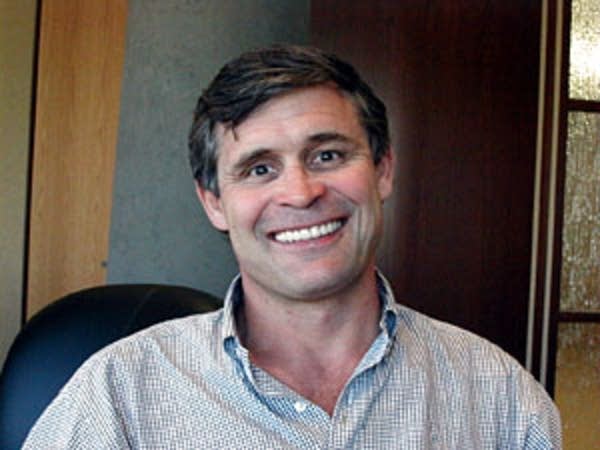Pols turn up heat on DM&E expansion plan
Go Deeper.
Create an account or log in to save stories.
Like this?
Thanks for liking this story! We have added it to a list of your favorite stories.

The rail line Secretary Mary Peters could see as she looked out of a Rochester building runs east to the Mississippi. And the railroad's proposal, extends that line west to Wyoming's coal-rich Powder River Basin.
Private funding has never materialized for the project, so the railroad turned to the federal government, asking it to provide a low-interest loan. If the expansion goes through, DM&E could run anywhere from eight to 37 coal and ethanol trains a day through Rochester. Each could be a mile long and travel at 40 miles an hour.

The Rochester Coalition says trains at that speed and that number pose too great a danger to the patients at the Mayo Clinic. It also says the railroad can't pay back the $2.3 billion loan. Rochester and the railroad haven't come anywhere close to agreeing on how to make the train traffic safe for the clinic.
This has dragged on for years, during which the only political leader holding press conferences against the loan was Democratic Sen. Mark Dayton.
Turn Up Your Support
MPR News helps you turn down the noise and build shared understanding. Turn up your support for this public resource and keep trusted journalism accessible to all.
This time it was Republican Sen. Norm Coleman. Now with the final decision on the loan due within a few weeks, Coleman is demanding Transportation Secretary Peters resolve Rochester's safety concerns. He says the secretary listened to the arguments.
"And then understood from the presentation of the Mayo that we're talking about feet; about hundreds of feet between where the tracks are and where you have patients with critical life support needs," he said.
From her visit Secretary Peters says she gained a good understanding of the city's concerns. Gov. Tim Pawlenty, Congressman-elect Tim Walz and the Mayo Clinic's President Glenn Forbes were also present.
Until now, Coleman and Pawlenty haven't waded terribly far into the issue. Coleman says the railroad has legitimate arguments for the loan, but he says he stepped into the political fray because of safety concerns.

"The parties did not have the level of trust to have the kind of conversations that could produce a resolution. And to me it's clear that you need someone other than the parties to look at what the concerns are and then figure out what the possibilities are. And in the end we have the secretary coming forward and listening and hopefully coming back to see if in fact we can address those concerns. There's no guarantee that can be done," Coleman said.
It would appear the political tide may be turning against the railroad. This would be the biggest loan the Federal Railroad Administration has ever authorized. South Dakota's Republican Senator John Thune earmarked legislation to make it a possibility. Thune once lobbied on behalf of the railroad. He was unavailable for comment for this story.
But Gov. Pawlenty says politics has nothing to do with it. "I've been consistent in my position of saying I don't want this project to go forward unless Rochester's concerns are met. Unfortunately, it's a federal decision, so I don't control the decision. But I can certainly be a leading voice for Minnesota to get the project stopped or altered."
The Surface Transporation Board has already ruled Rochester's environmental and safety concerns have been met.
During her trip Secretary Peters also met with railroad president Kevin Schieffer and his supporters in Sioux Falls. He says Peters was on a fact-finding mission.
"I think there's tremendous amount of support throughout our system, including in Minnesota. I think elected officials, even in Minnesota, reccognize that. Every Minnesota ag group, every Minnesota energy group is strongly suporting this project, and the Mayo Clinic is strongly opposing it. And it puts them in a tough spot. We understand that," Schieffer said.
The Transportation Secretary has yet to make what is called a record of decision on the project's environmental impact, but when she doies she'll have 90 days to rule on whether DM&E gets the requested loan.



